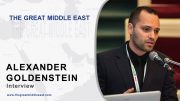Obama’s Administration has left really tough heritage in the Middle East to the Republican Administration. USA could play a crucial role in the Middle East for many years during the Cold War and after it, in spite of the Soviet presence in Syria and temporary convergence of USSR with Egypt and Iraq.
The new Secretary of State Mike Pompeo has a truly daunting task – to rethink the role of USA in the Middle East and solve several important issues on which the further status of the USA in the Middle East depends. Of course, Mr. Pompeo will need the experience and information he gained being the CIA director. Opposite to his predecessor Rex Tillerson, Mr. Pompeo can work more closely with the White House, what can make the U.S. policy in the Middle East more prompt and consistent.
There are many major and medium crises in the region, which require the involvement of USA for their solution.
Probably, one of the most prolonged and bloody crisis is the war in Syria, which claimed the lives of hundreds of thousands of people. Here USA will have to confront with Iran, Turkey and Russia. Although recently Donald Trump announced the intention to withdraw the troops from Syria, exact date of withdrawal is unknown, and even so, Washington could not withdraw from resolving the crisis. The latest chemical attack of the Bashar Assad regime in Douma and Donald Trump’s angry tweets showed that the deal signed during the Obama presidency regarding the Syrian chemical weapon doesn’t really work and they need to do something with it.
Mike Pompeo, Director of the CIA, will become our new Secretary of State. He will do a fantastic job! Thank you to Rex Tillerson for his service! Gina Haspel will become the new Director of the CIA, and the first woman so chosen. Congratulations to all!
— Donald J. Trump (@realDonaldTrump) 13 марта 2018 г.
For Iran and Russia, the outcome of the war in Syria has great geopolitical and ideological significance. Failure in Syria will hit Vladimir Putin’s and the Iranian regime’s prestige hard and Moscow, as well as Tehran, of course, understand it. That is why we should assume that the U.S diplomacy will face serious difficulties in the issue of Syria and Bashar Assad’s future.
Following Donald Trump’s decision to move US Embassy to Jerusalem, stagnation appeared in the already stagnant process of the settlement of the Israeli-Palestinian conflict. The U.S. diplomacy has to find a way to bring the parties to the table of dialogue and find common ground for the further dialogue and progress.
One of the most urgent issues in the Middle East is the Iranian issue. I don’t write the issue of “Iranian nuclear program” intentionally, because problems with Iran are due not only to the nuclear program. Policy, pursued during the Obama Administration, showed its ineffectiveness, let Iran strengthen its positions in the region and caused a cooling of relations between USA and monarchies in the Gulf. The State Department, headed by Mr. Pompeo has to decide what to do with Iran. So they need to develop an effective and clear strategy. It is impossible to manage without the assistance of regional allies, such as Israel and Saudi Arabia. There is a unique opportunity to reconcile the positions of Israel and Saudi Arabia in regard to a number of issues and to establish a working dialogue between two countries, which will enable to cooperate more effectively on the Iranian issue and a number of other issues in the region.
One of the main issues for the U.S. diplomacy in the region is to settle the disputes with Turkey. It is noteworthy that Turkey is one of the oldest members of NATO, one of the most important countries in the Middle East and had long been one of the main allies of the U.S. in the region. We should remember that all failures and disputes between Washington and Ankara are skillfully used by opponents of the U.S. in the region – Iran and Russia. Even though I don’t believe in the establishment of a new “triple alliance Moscow-Ankara-Tehran” against USA (because all three countries are geopolitical opponents), I assume than the disputes between USA and Turkey during the Obama administration were not the least reason of the establishment of this temporary “geopolitical alliance”. This matter requires the solution, while it is possible, and they cannot do without a clear strategy and concessions from both sides for the sake of geopolitical interests. For example, Turkey is still interested in American Patriotmissiles.
Good luck to Mike Pompeo during his Confirmation Hearing today. He will be a great Secretary of State!
— Donald J. Trump (@realDonaldTrump) 12 апреля 2018 г.
It can be a subject of negotiations.
It looks like cool relations between USA and its Arab allies in the Gulf, formed at the end of Obama’s presidential term, take second place. An extensive visit of Saudi Crown Prince to USA and visit of the Emir of Qatar to Washington can help to restore trust and maybe to settle the crisis around Qatar. This crisis divides American allies and hampers the consolidation around the Iranian issue.
In general, right now the situation in the region reminds the situation during the Cold War. However, this time besides Russia, which tries to strengthen its positions in the region, there is also Iran which has a strong influence and capabilities in the Middle East. And while Washington hasn’t developed a clear strategy for Iran, Tehran continues to increase its expansion in the region.
As a result we can conclude that U.S. diplomacy faces serious challenges in the Middle East, requiring throughout analysis and, sometimes, difficult decisions. What the region will be in the next 30-50 years depend on how USA will act.






Be the first to comment at "What will Pompeo face in the Middle East?"